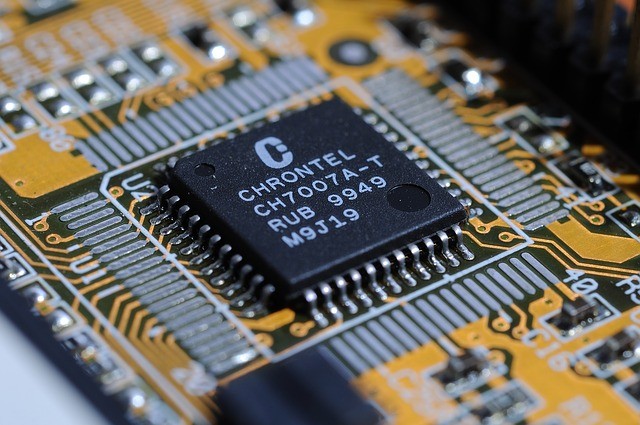Common Agreements Used by Tech and Robotic Startups
Absent of proper agreements and contracts, business tech startups in Los Angeles may find their company facing legal issues. Due to limited funds, many entrepreneurs find it difficult to hire a business startup lawyer oversee the legal end of their business operations. Our business startup attorneys understand the amount of work and effort robotic startups, developers’, and programmers put into their business. Thus, our firm provide various fee and payment options for startups. It’s safe to say, that many programmers and developers are concerned about protecting their business’ property rights and proprietary rights for software, applications, and other programs.
One of the most commonly used agreements for tech startups, robotics, developers, and programs are licensing agreements
Intellectual Property Licensing Agreements
-
Licensed intellectual property provides property rights and proprietary rights for software, or any computer related intangible asset.
-
What you should include in the Licensing Agreement
- License Scope: Contain sections regarding limited use and make sure you have the ultimate power and control of the license scope.
- Revenue From Your Product: Make sure you have control on the stream of revenue whether it is a one-time license fee or royalties
- Term length
- Warranties
- Rights to source code
- Support services
Important Note: Licensing Agreement should be in writing
Joint Venture Agreements in California:
-
Joint Ventures Agreement is the mutual collaboration and agreement between two or more businesses.
-
Important questions to consider:
- The amount of each parties contribution
- The type of work of each parties contributions
- Specific skills or expertise
- What is the monetary distribution
-
The party responsible for operations
-
The term or legnth of the agreement
-
Is there a planned end date? What is the procedure for termination?
-
What is the process for using intellectual property outside of the venture?
-
How do you plan on settling disagreements?
California Independent Contractor Agreements
-
California Independent contractors are legally considered non-employee who provide a service for you or your business.
-
Such as, developers, software engineers, accountants, marketing gurus.
-
For tax purposes complete 1099-MISC forms.
-
It is recommended that the contract include terms such as expected type of work to be rendered, payment method, duration, confidentiality, attorney’s fee provision, and ensure that work product is properly assigned to the company.
-
Technical Assistance Agreement
-
A Technical Assistance Agreement dictates the process of discussing and presenting technical to a foreign national.
-
Important Notes:
-
If the information or “data” being discussed is proprietary and out of the commercial marketing scope then the information should be handled under Technical Assistance Agreements.
-
Deliveries in association with TAA may require a separate exporting license.
-
Required TAA Information Checklist
-
Is your company registered with Defense Trade Control?
-
Do you have background information: Descriptions of roles each party plays? History to explain why the agreement is required? Review of the commodity?
-
Concise summary of the program’s purpose to be completed?
-
Estimated value of the agreement?
-
Are there any US patents on file in association with the agreement?
California Manufacturing Agreement
-
A manufacturing agreement is key for technology companies because the agreement outlines the roles and responsibilities when a company manufactures for another company.
-
Here are some important aspects of the contract that you should consider:
-
Definitions: Are the roles and parties clearly?
-
Terms: What are the terms of the agreement? How long is the agreement in effect? Is there a renewal clause?
-
Product Procedure: Are there any specifications or federal rules/regulations? Are there listed measures against rejection from the buyer or product deficiency?
-
Purchase Orders: What is the process for purchasing orders?
-
Payment and Pricing: What is the cost of the product? Do you have a system in place for late payments?
-
Freight, Shipping, Provisions, and Risk of Loss: What are the costs for shipping and freight? Any planned measures against loss or damage on delivery?
-
Other Terms: warranties, confidentiality, intellectual property, indemnification, insurance, attorney’s fees, and so forth.
California Partnership Agreements
Two or more partners are needed to form a partnership and it doesn’t require formalities. General partnership can be formed by a(n) written/oral partnership agreement or simply by partners’ conducts. In contrast, in most states, the number of people needed to form a corporation varies. Limited Liability Companies require paying a fee and filing your business with the secretary of state. Choosing your startup’s entity formation depends on, amongst other factors, what your objectives and goals are, liability concerns, and tax preferences.
Top Business Lawyers in California
For answers to any other questions you may still have about contracts and agreements for business tech startups including intellectual property licensing agreement, or to discuss your concerns confidentially with our team of experienced California business attorneys, give us at (310) 943-1171.
Intellectual Property Licensing Agreement Video

